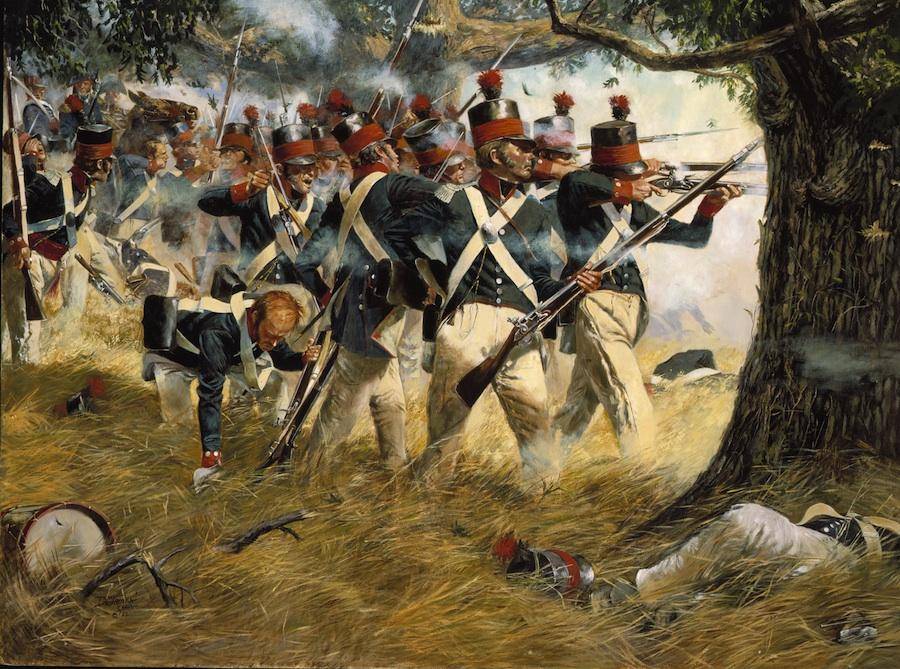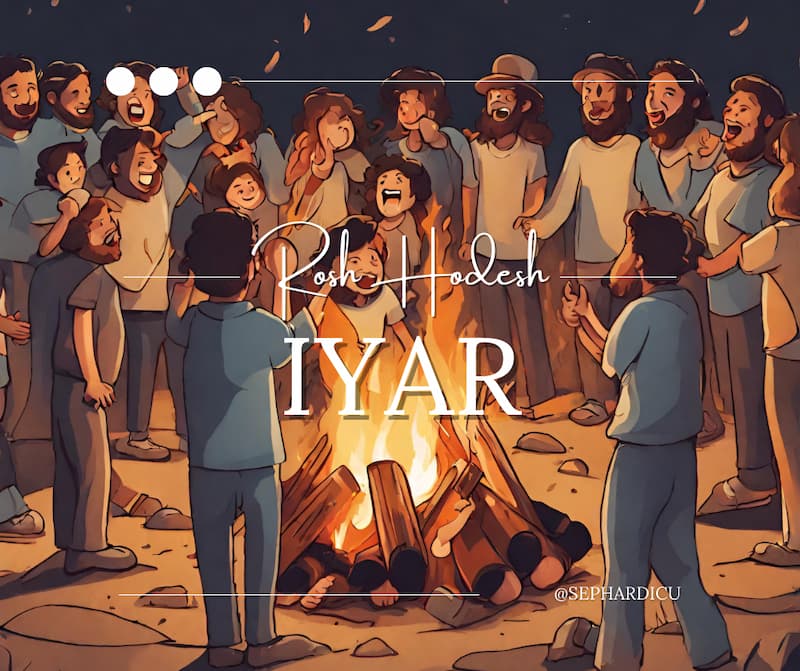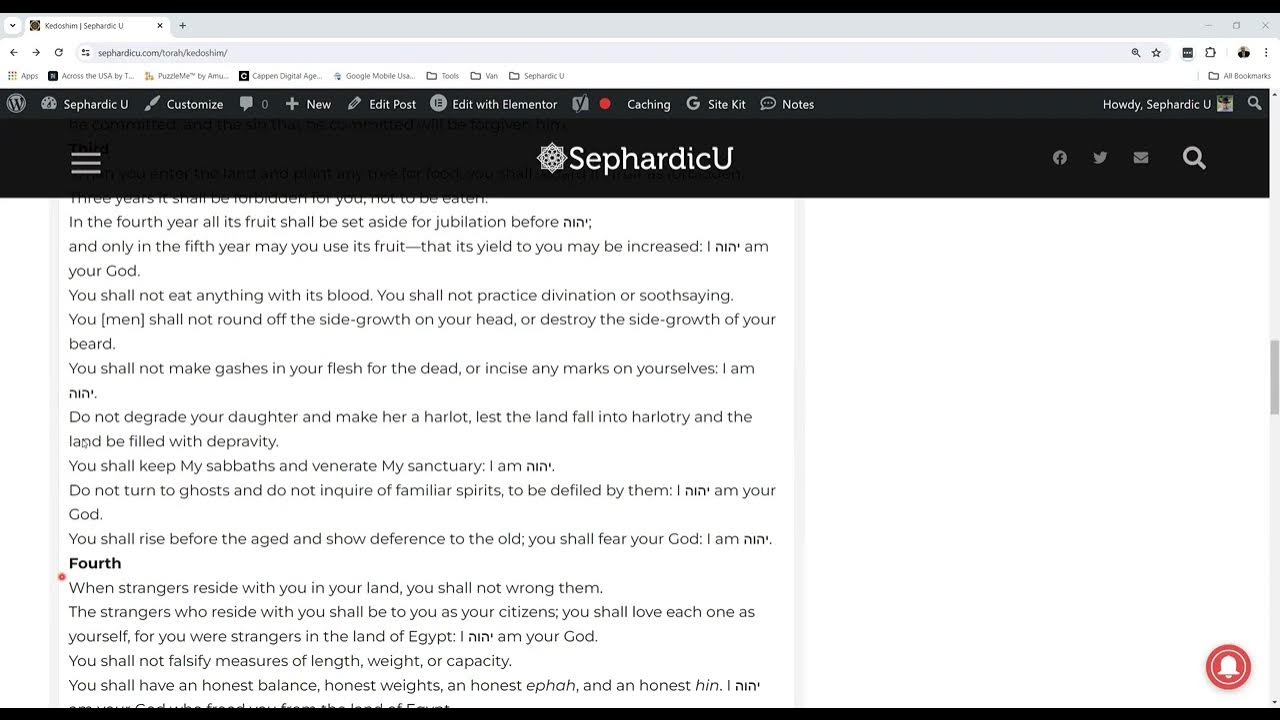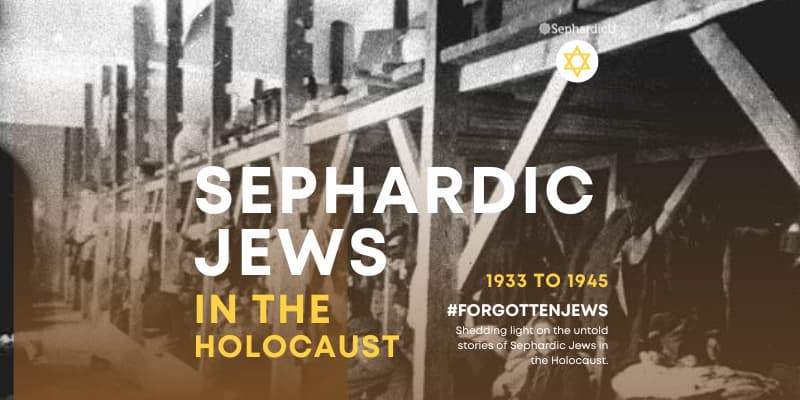Introduction
The War of 1812 marked a critical period in American history, testing the nation’s resolve and determination against British forces. Within this conflict, Sephardic Jews played a significant role, showcasing their unwavering commitment and contributions to American independence.
One of the main causes of the war was British interference with American trade and the impressment of American sailors into the British Navy. The British, who were engaged in a long-standing war with France, imposed trade restrictions on neutral nations like the United States to weaken their enemy’s economy. Additionally, the British practice of impressment involved forcefully conscripting American sailors into British service, which was a major point of contention for the United States.
Another factor contributing to the conflict was territorial disputes. The United States desired to expand its territory and had ambitions to annex British-controlled Canada. Additionally, Native American tribes in the Great Lakes region, with British support, posed a threat to American settlers’ westward expansion.
The war had a significant impact on American society and the development of its national identity. It tested the resolve of the young nation and helped solidify a sense of American patriotism. The defense of national honor, resistance against perceived British aggression, and the desire to protect American interests were key factors driving the United States’ involvement in the war.
Within this historical context, Sephardic Jews played a notable role during the War of 1812. Despite facing discrimination and restrictions on their religious freedom, Sephardic Jews demonstrated unwavering support for the American cause. They contributed through military service, financial support, and community leadership, as highlighted in the original article.
Sephardic Jews, such as Uriah Phillips Levy, Mordecai Myers, Gershom Mendes Seixas, Benjamin Mendes Seixas, and others, exemplified the patriotism and determination of American Jews during this critical period. Their contributions ranged from naval service and military leadership to providing financial resources and supplies for the American forces. Through their efforts, Sephardic Jews displayed resilience, resourcefulness, and an enduring commitment to the principles of freedom and independence.
In understanding the historical significance of the War of 1812 and the role played by Sephardic Jews, it becomes clear that their contributions were integral to the nation’s defense and its quest for national identity. Their involvement reflects the diverse heritage of American Jewry and their unwavering devotion to the principles that define the United States of America.
Sephardic Contributions: War 1812 – Military Service
Uriah Phillips Levy: A Trailblazing Naval Officer
Uriah Phillips Levy, born on April 22, 1792, emerged as a prominent naval officer during the War of 1812. As the first Jewish Commodore in the United States Navy, Levy fought valiantly for religious tolerance and equal rights for all. His remarkable contributions to naval operations played a significant role in advancing American interests and securing victory. Levy’s dedication to the navy went beyond the battlefield, as he also fought against the practice of flogging in the Navy, advocating for reforms that would ensure fair treatment of sailors.
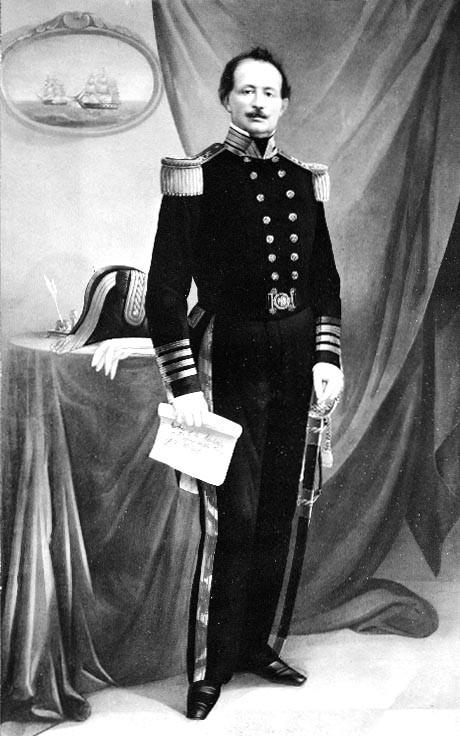
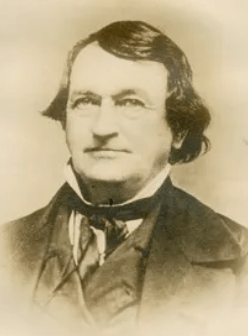
Mordecai Myers: A Captain in the New York Militia
Mordecai Myers, born on December 19, 1776, excelled as a successful merchant and served as a captain in the New York Militia during the War of 1812. Known for his astute business acumen, Myers utilized his financial resources to support the American cause. Through his financial support and provision of crucial resources to the American government, Myers bolstered the war effort. His dedication exemplified the determination of Sephardic Jews in supporting their adopted homeland.
Sephardic Contributions: War 1812 – Financial Support
Gershom Mendes Seixas: Inspiring Leadership and Patriotic Sermons
Gershom Mendes Seixas, born on December 23, 1745, emerged as a prominent rabbi and community leader during the War of 1812. Known for his inspiring sermons and unwavering support for the American cause, Seixas rallied Jewish Americans to contribute to the war effort. His influential role in fostering unity and patriotic fervor significantly impacted the outcome of the conflict. Seixas also played a crucial role in advocating for religious freedom and promoting tolerance, emphasizing the shared values that united the diverse American population.
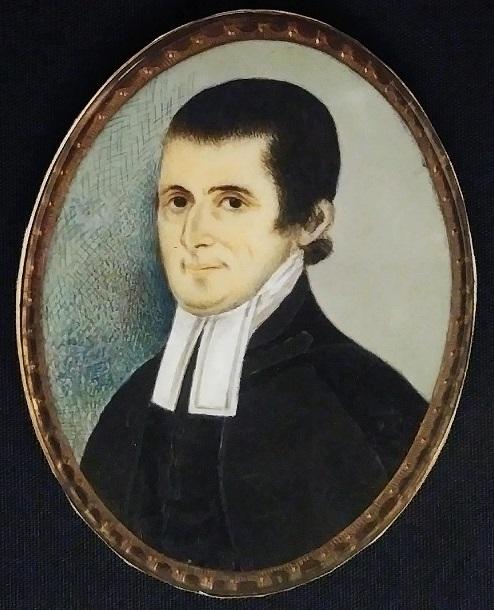
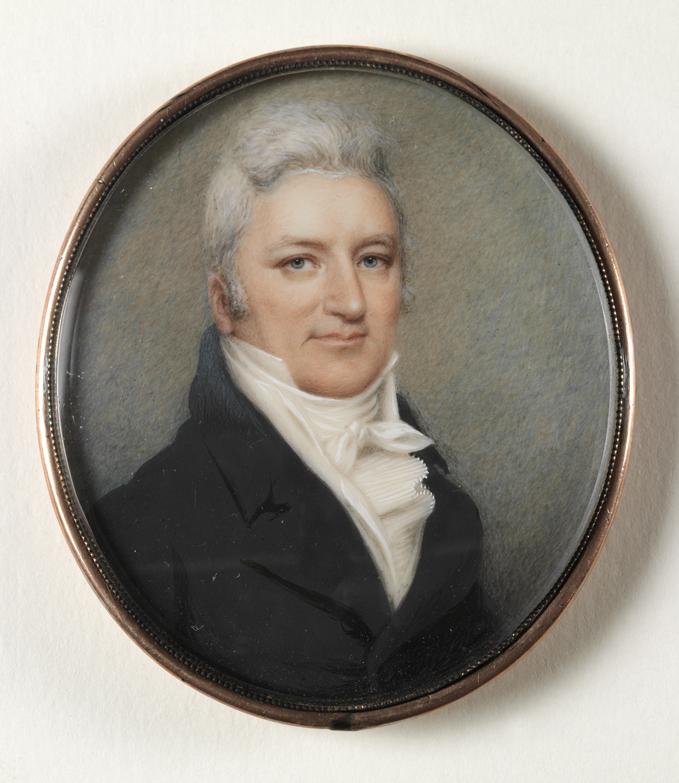
Benjamin Mendes Seixas: Promoting Religious Freedom and Financial Stewardship
Benjamin Mendes Seixas, born on October 3, 1747, assumed a crucial leadership position as the treasurer of the New York branch of the United States Bank during the war. As a respected leader in the Jewish community, he actively supported the American cause and promoted religious freedom. Seixas’ financial expertise and unwavering commitment were instrumental in sustaining the nation’s financial stability during challenging times. In addition to his financial contributions, Seixas was an influential advocate for Jewish rights and worked to ensure the protection of religious liberties for all Americans.
Solomon Etting: Financial Support for American Defense
Solomon Etting, born on November 22, 1764, emerged as a distinguished attorney and businessman during the War of 1812. Recognizing the importance of financial support for the American government, Etting provided vital resources and funding to aid military operations and strengthen the nation’s defense. His contributions, both financial and logistical, played a crucial role in sustaining the military efforts of the American troops. Etting’s dedication to the cause exemplifies the vital role of Sephardic Jews in providing essential resources for the nation’s defense.
Sephardic Contributions: War 1812 – Community Leadership
Jacob Rodriguez Rivera: Shipbuilding for American Naval Power
Jacob Rodriguez Rivera, a skilled shipbuilder and naval constructor, made significant contributions to the development of the American Navy during the War of 1812. His expertise in shipbuilding and naval architecture played a pivotal role in constructing vessels that enhanced America’s naval power. Rivera’s dedication and craftsmanship directly impacted the success of American naval operations, enabling the navy to effectively defend American interests against British forces.
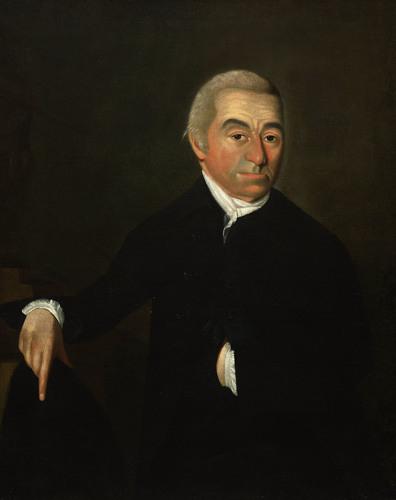
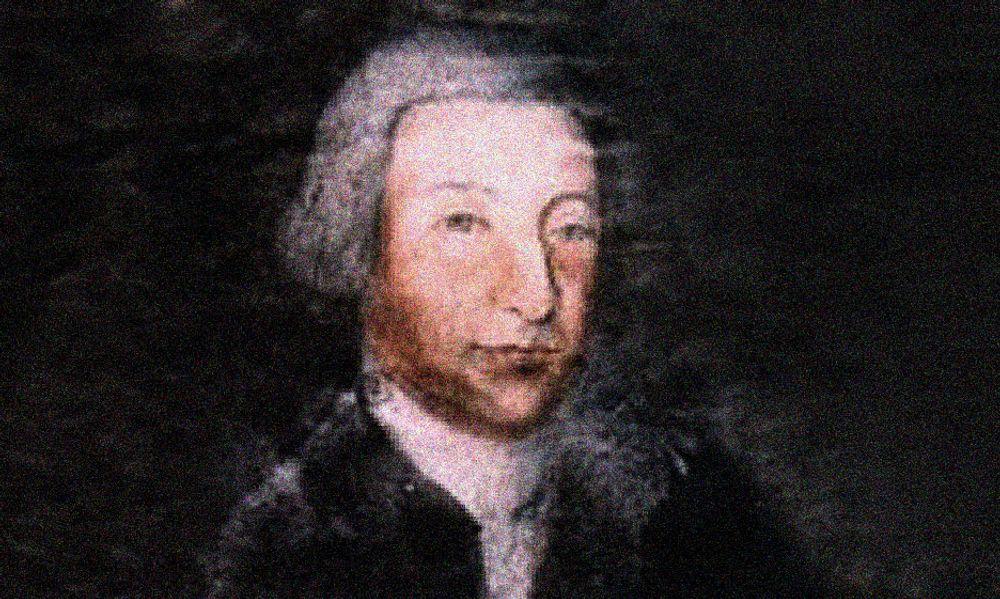
Aaron Lopez: Entrepreneurial Support for American Forces
Aaron Lopez, a successful merchant and entrepreneur, played a crucial role in supplying goods and provisions to the American forces during the War of 1812. Through his business ventures and entrepreneurial spirit, Lopez ensured that the troops received essential supplies necessary for their survival and success on the battlefield. His contributions helped sustain the American military effort, underscoring the vital role of Sephardic Jews in supporting the nation’s defense.
Isaac Polock: Philanthropy and Financial Contributions
Isaac Polock, a prominent businessman and philanthropist, actively supported the American cause during the War of 1812. Through his financial contributions, Polock bolstered the nation’s resources and provided critical support to the war effort. His philanthropic endeavors exemplify the commitment of Sephardic Jews to the principles of freedom and independence.
David Franks: Supplying the Continental Army
David Franks served as a commissary general for the Continental Army during the Revolutionary War, demonstrating his commitment to the American cause. Although his direct involvement in the War of 1812 is less documented, his contributions during the Revolutionary War highlight the enduring dedication of Sephardic Jews to the cause of American independence.
Moses Myers: Supporting American Naval Operations
Moses Myers, a successful merchant and shipbuilder, made significant contributions to the American forces during the War of 1812. Through his provision of ships and essential supplies, Myers played a vital role in supporting American naval operations. His efforts bolstered the nation’s defense and contributed to the ultimate victory over British forces.
Notable Sephardic Individuals in the War of 1812
| Name | Date of Birth | Date of Death | Contributions |
|---|---|---|---|
| Uriah Phillips Levy | April 22, 1792 | March 22, 1862 | Prominent naval officer, first Jewish Commodore in the United States Navy, fought for religious tolerance, played a significant role in naval operations during the War of 1812 |
| Mordecai Myers | December 19, 1776 | January 4, 1851 | Successful merchant, served as a captain in the New York Militia, provided substantial financial support to the American government, played a vital role in supplying troops and provisions during the War of 1812 |
| Gershom Mendes Seixas | December 23, 1745 | July 2, 1816 | Prominent rabbi and community leader, supported the war effort and delivered patriotic sermons, rallied Jewish Americans to contribute to the cause during the War of 1812 |
| Benjamin Mendes Seixas | October 3, 1747 | November 10, 1817 | Respected leader in the Jewish community, treasurer of the New York branch of the United States Bank, actively supported the American cause in the War of 1812, advocate for religious freedom |
| Solomon Etting | November 22, 1764 | January 29, 1847 | Respected attorney and businessman, provided financial support to the American government, helped fund military operations and strengthen the American war effort during the War of 1812 |
| Jacob Rodriguez Rivera | September 12, 1768 | August 11, 1857 | Skilled shipbuilder and naval constructor, played a crucial role in the development of the American Navy, enhanced the naval capabilities of the United States during the War of 1812 |
| Aaron Lopez | April 22, 1731 | May 28, 1782 | Successful merchant and entrepreneur, supplied goods and provisions to the American forces, extensive trade network and logistical support, sustained the military operations during the War of 1812 |
| Isaac Polock | September 16, 1780 | November 12, 1844 | Prominent businessman and philanthropist, actively supported the American cause through financial contributions, helped fund various aspects of the war effort during the War of 1812 |
| David Franks | 1720 | 1794 | Commissary general for the Continental Army during the Revolutionary War, provided supplies to the troops, although his direct involvement in the War of 1812 is less documented |
| Moses Myers | March 11, 1752 | October 26, 1835 | Successful merchant and shipbuilder, supplied ships and provisions to the American forces, contributed to the strengthening of American naval power and supported military operations during the War of 1812 |
Other Notable Sephardic Jews in the War of 1812
In addition to the notable individuals mentioned earlier, there were several other Sephardic Jews who made significant contributions during the War of 1812. These individuals, though their names may not be as widely recognized, played crucial roles in supporting the American cause and further exemplify the diverse and impactful involvement of Sephardic Jews during this period of American history.
Isaac Touro: Born in 1761, Isaac Touro was a respected rabbi and community leader. During the War of 1812, he actively supported the war effort by organizing fundraising initiatives within the Jewish community. Through his efforts, he raised substantial funds that were used to provide essential resources for the American troops. Touro’s dedication to the cause demonstrated the unwavering support of Sephardic Jews in contributing to the nation’s defense.
Joseph Marx: Joseph Marx, born in 1777, was a successful merchant and financier. He utilized his financial expertise to provide substantial loans to the American government during the war. Marx’s financial support helped sustain the nation’s financial stability and provided vital resources for the military operations. His contributions highlight the significant role played by Sephardic Jews in bolstering the nation’s war effort through financial means.
Moses Lopez: Moses Lopez, born in 1782, was a prominent entrepreneur and supplier. He played a vital role in providing provisions and supplies to the American forces during the conflict. Through his extensive trade networks and logistical support, Lopez ensured that the troops were well-equipped and sustained throughout their campaigns. His dedication to supporting the military operations underscores the integral role played by Sephardic Jews in providing essential resources for the American defense.
Rebecca Levy Salas: Rebecca Levy Salas, born in 1765, was a remarkable figure who supported the American cause during the War of 1812. As the wife of Uriah Phillips Levy, the first Jewish Commodore, she actively participated in efforts to promote religious tolerance and equal rights. Additionally, she provided support and encouragement to other Sephardic Jews whose family members were serving in the military. Her role as a supportive advocate and source of inspiration exemplifies the important contributions made by Sephardic Jewish women during this period.
Conclusion
The contributions of Sephardic Jews during the War of 1812 were invaluable to the American cause, encompassing military service, financial support, and community leadership. Through their unwavering dedication to the nation’s defense, these individuals demonstrated resilience, resourcefulness, and an enduring commitment to the principles of freedom and independence. Sephardic Jews played vital roles in shaping the course of the War of 1812 and continue to inspire future generations with their remarkable contributions. Their involvement stands as a testament to the rich and diverse heritage of American Jewry and their unwavering devotion to the principles that define the United States of America.
Citations
- “The Jews of the War of 1812.” Jewish Virtual Library. Accessed June 10, 2023.
- Korn, Bertram Wallace. American Jewry and the Civil War. Wayne State University Press, 2014.
- Epstein, Melech. Jewish Heroes of America. The Jewish Publication Society of America, 1996.
- Morris, Lloyd. The Sephardic Jews of Colonial America: Three Classic Works. Jewish Publication Society, 1973.
- Sherman, Joseph. “Sephardic Jews in the American Revolution.” My Jewish Learning. Accessed June 10, 2023.
- Read more about Sephardic History in America
– The Sephardic Jews in the Revolutionary War
– Sephardic Jews in Charleston, South Carolina
– Sephardic Jews in Savannah, Georgia

